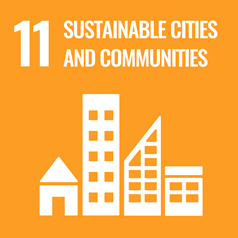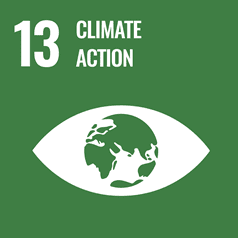Research team secures $2.3M to help reduce methane emissions
University researchers have secured $2.3 million to advance the development of a catalytic system with the potential to significantly reduce greenhouse emissions associated with ventilation air methane (or VAM) - a common emission in Australia's coal and gas sectors.

Methane is a potent greenhouse gas released from coal seams, oil and gas production, waste and livestock. The global scientific community has warned that we need to drastically reduce methane emissions to help reduce global warming. One of the most effective ways to do this is to use a catalyst that accelerates its oxidation by air.
The University research team, led by Professor Michael Stockenhuber from the School of Engineering, has been exploring VAM mitigation technologies and approaches for over 10 years. It has now designed and manufactured a catalytic technology to overcome some of the current hurdles with VAM abatement.
While initial outcomes in a lab setting show promise, the team has not examined the performance of the scaled-up catalyst under long-term conditions. The $2.3 million project will enable researchers to construct a pilot-scale reactor to demonstrate the efficacy of their technology and support pilot studies to measure real-world impacts for our coal and gas sectors.
The team hopes the outcomes of the research project will lead to another phase of work - the development of a commercial prototype.
"Catalysis is one of the main enabling technologies that supports new commercially viable and environmentally friendly processes for manufacturing and emission control. The possibilities to manufacture future energy carriers, materials, chemicals, pharmaceuticals and to reduce emissions are endless." - said Professor Michael Stockenhuber.
The 19-month project is being funded by the Resources Methane Abatement Fund, which supports the Australian Government's legislated emissions reduction targets and commitments to the Global Methane Pledges. The program supports research organisations to undertake development, prototype verification and validation, and demonstration level projects.
The research team - which also includes Professor Eric Kennedy, Dr Matthew Drewery and Dr Luke Harvey - will collaborate with the Erlangen Centre for Interface Research and Catalysis at Friedrich Alexander University in Germany, which has supported previous University of Newcastle research projects and is a recognised leader in the development of monolithic catalysts.
Related news
- Students, take the lead: how a peer-led program could transform our kids’ trajectories
- Post‑mining research comes to life in community art exhibition
- World-leading MRI upgrade boosts research capability at HMRI Imaging Centre
- New equipment brings cancer's complexity into focus
- Yes, weight-loss drugs work but nutrition needs attention
The University of Newcastle acknowledges the traditional custodians of the lands within our footprint areas: Awabakal, Darkinjung, Biripai, Worimi, Wonnarua, and Eora Nations. We also pay respect to the wisdom of our Elders past and present.

